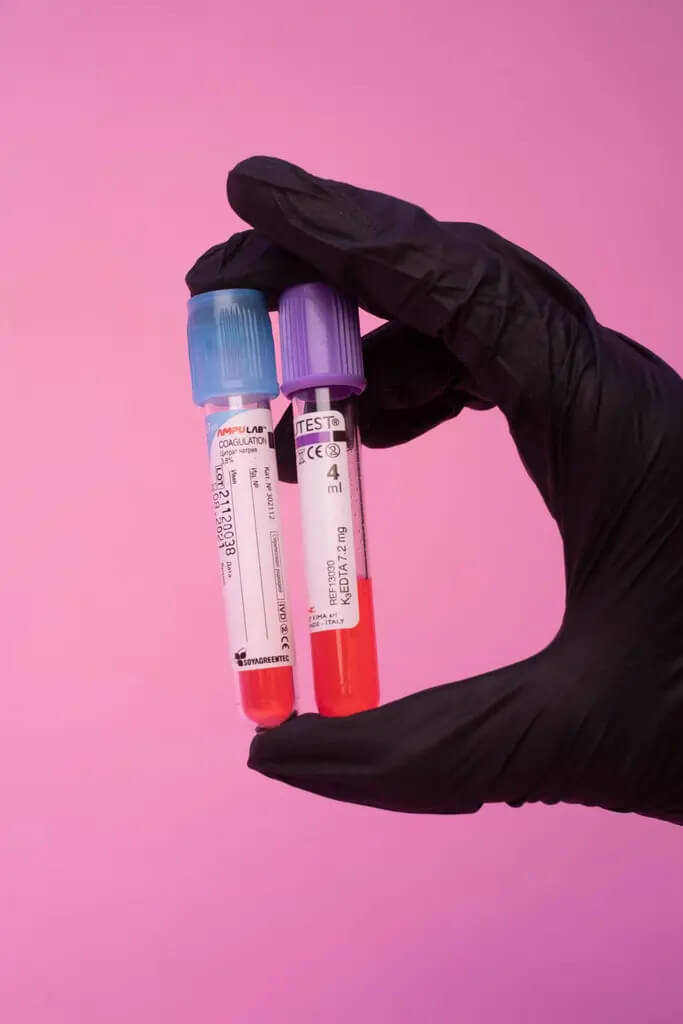
Should healthy children get regular blood tests?
This is a good question that I’ve been getting asked quite frequently lately.
Please note that I am not talking about children that get sick often, are not growing well, are picky-eaters or overweight or children with any other chronic condition. Those children need extended blood tests after they have seen a consultant and have discussed the plan with the parents and pediatrician.
This chapter is about healthy children.
I will try to answer that question.
Is there a need for regular blood tests for children?
In many countries around the world there is one mandatory blood test and that is the one done at the age of 1 year. Often, babies are required to get finger-prick blood tests between the age of 9 months and 1 year to assess for hemoglobin levels and to consider the need for iron supplements. Find out more about this blood test here.
But other than this one blood test, most countries do not have any mandatory blood tests until the child is 18 years old.
What do I think? Do healthy children need to get their blood checked?
In my humble opinion, I think they do.
How often should healthy children get blood tests done?
I think they should get blood tests done every few years (between 3-5). What does this depend on? The circumstances.
If a child’s tests are within normal limits (for all the parameters that I think should be tested for as you will see below), you can probably wait 5 years before testing again. However, if there is a previously abnormal result or it is the first time the child got any tests done, then it is probably a good idea to get another set of tests 3 years later.
What kind of things should we be testing for?
For healthy children, I think the following basic parameters should be tested:
Complete blood count – this is especially important if a child has anemia
A full biochemistry panel – including liver function tests, kidney function tests, albumin and electrolytes
Iron tests – including iron and ferritin. This is because of the high rates of iron deficiency anemia in children
Celiac – as mentioned on our mythological chapter about celiac, I think we should consider celiac testing as a screening test. I know that this is not part of the guidelines in most places in the world, but if this test should be done once every few years, and especially if a child was previously found to be iron deficient.
What about other blood tests?
Since we are talking about healthy children, per definition, there is no need for further blood tests, unless the pediatrician finds them to be relevant. Vitamin B12 deficiencies, folic acid deficiencies, and vitamin D deficiencies are not common in children that eat a balanced diet.
What should we do before the blood test? How can I prepare my child for it?
There are many relevant questions related to this.
Should I tell my child in advance? Should one or both parents accompany the child? Should I get the blood test done for all three children on the same day and turn it into a family outing? Are there any distracting tricks that I can use?
You will find the answers to these questions summarized in our chapter: blood tests – how to help the child (and parents) get through them.
Does the child have to fast for the blood test?
Yes, usually, the child will need to have fasted overnight for the test. Find out more about why this is important, here.
Should the child get a urine test done?
I do not see a reason for healthy children to get routine urine tests done.
What should I do if my primary care physician refuses to order blood tests for my children?
Well, I’ve seen it all. There are physicians that agree that healthy children should get regular blood tests done and their national health system allows for them to order these tests and there are others that do not agree or their health system restricts them from ordering any.
So, if your physician declines your request, I would set up an appointment with them to try and understand why they think it is unnecessary. I do not encourage arguing.
What should I do once the tests have been done – who goes over the results?
The doctor that ordered the tests will receive the results and will have to confirm that they are normal. If anything is abnormal, it is their responsibility to reach out to you. Nonetheless, I do encourage you to reach out to your doctor and go over the results together if you note any abnormalities, because sometimes things can be missed.
In summary, short and sweet. I think it is important for healthy children to get regular blood tests done once every 3-5 years.
Good luck.
For comments and questions, please register
